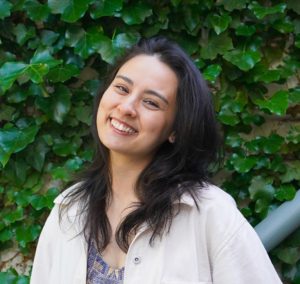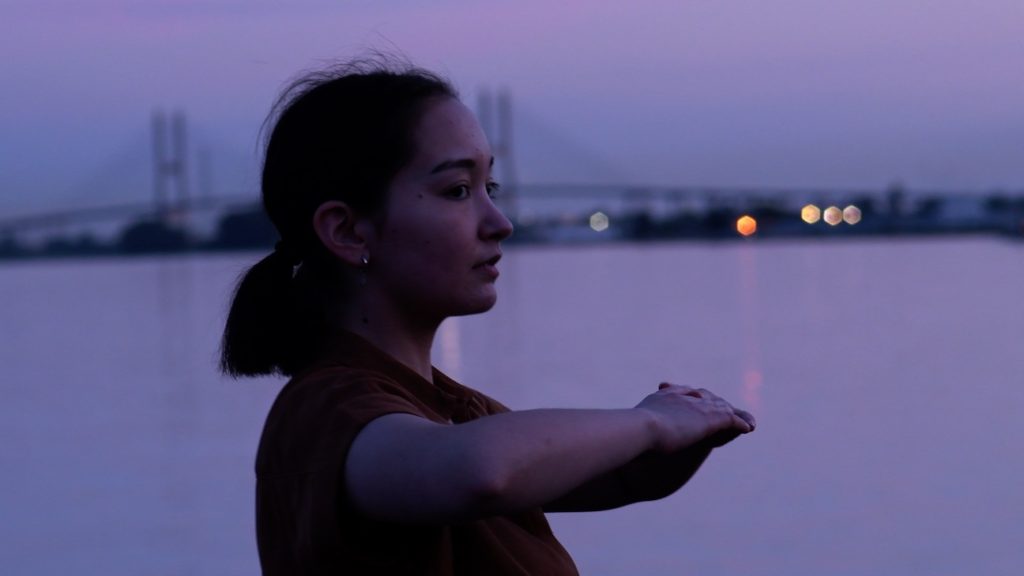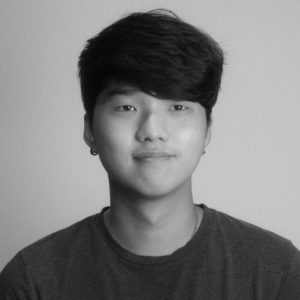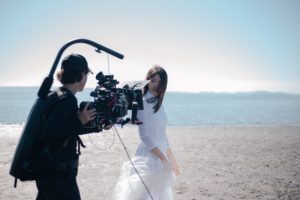F-O-R-M’s “Slow-Fashion” Films: Taking time to make art that lasts
- Home
- City Reports 2015 - 2019
- F-O-R-M’s “Slow-Fashion” Films: Taking time to make art that lasts

By Rachel Silver Maddock
In an age of unending video content through Instagram, TikTok and ever-increasing streaming platforms, F-O-R-M (Festival of Recorded Movement) is carving out space for a slower, more refined approach to making film art.
The annual international festival commissions youth (ages 15-25) and emerging artists (25+) to make short films over a five-month process, supporting them with an artist fee, workshops, and mentorship. The films are showcased at F-O-R-M on a variety of platforms — this year’s hybrid version includes the cinema at Simon Fraser University’s Goldcorp Centre for the Arts, outdoor public screens around Vancouver, online on Vimeo, and the festival website, with mini-commissions premiering on Instagram.

When Sophia Wolfe founded the festival in Vancouver in 2016, she couldn’t have predicted how film and video as mediums would start to dominate digital content — or how recorded movement would become like an anthem of the next generation through TikTok. “It has been like an explosion, especially since the pandemic,” she says. “Movement onscreen has always been important to youth but the ways we engage with it have changed so drastically.”
Wolfe, a dance artist and filmmaker, became interested in recording movement during the dance-on-screen component of her time with Modus Operandi, a professional dance training program. “I love how film, editing, and sound can capture the simplest of movements — moving a finger, breathing,” she says. “With film, there’s potential to see bodies in motion in such a different way.”
Wolfe started F-O-R-M as a grassroots initiative, supported by Company 605 and creative producer Kristina Lemieux for the first three years. After that, it became an independent non-profit, the Recorded Movement Society. F-O-R-M receives hundreds of submissions each year locally and internationally, and any concept of recorded movement is eligible — from dance to skateboarding. Submissions come in at any level of production, and the commissioned artists get the chance to develop their concept more fully with a budget and access to subsidized equipment rentals.
Before the pandemic, F-O-R-M was in a niche category, but since 2020, digital festivals (and especially opportunities to present dance onscreen) have proliferated, causing Wolfe and her creative team to rethink their position. “We started to ask, where do we now sit in the sea of festivals and platforms that are supporting digital art?” Wolfe says. “How do we retain our values, and offer a different space than what others are doing?”

The answer was to dive deeper in supporting artists’ creative processes, rather than just offering a screening fee, and to offer networking opportunities through workshops, mentorship, and the festival’s live events.
“It’s been so great to be in an environment that feels supportive,” says Jullianna Oke, a Vancouver-based dance artist who is collaborating with Kevin Jin Kwan Kim (director) and Seth Kitamura (musician) to create one of this year’s commissions.

Their film, A Conversation in Rhythm, records a “conversation” or jam session between a tap dancer and drummer using traditional methods of filming dialogue. Before shooting their project, Oke, Kim, and Kitamura participated in F-O-R-M workshops on collaboration, editing, and sound. Kim says he appreciated the pace of the creation process.
“[Digital] media is such an essential part of our generation — it’s everywhere and mass-produced,” says Kim. “But sometimes the content feels like fast fashion where it’s more about numbers than quality. F-O-R-M helped us slow down — to make something short and refined, and take time to think about our process.”
For Solara Thanh-Bình Đặng, another commissioned artist based in Vancouver, the mentorship aspect has been invaluable. “During the process, I would get in over my head and nervous about my project, and speaking to the mentors helped remind me why I’m doing it and that my vision is attainable,” she says.
Her film, Sóng Xô (Breaking Waves), features her performing an interpretive dance on the beach to vocals sung by her mother, to explore her mother’s emotional experience living through the Vietnam war. Đặng’s mentors helped her with the emotional, philosophical approach to her subject, and also offered practical tips for filming at the beach.

Though Đặng says film is her main mode of artistic expression, she notes that fast-fashion videos (often filmed and edited on smartphones) have a way of capturing people’s attention. “I live on the internet a lot and there is so much creativity and talent on TikTok, but it is very fleeting,” she says. “I will look at one TikTok and laugh and share it, but after five minutes my brain deletes [the memory of] it.”
“I want to make something that has a lasting feeling,” she says. “There needs to be a place for [digital] media and art that enters your long-term memory or core emotions, and F-O-R-M is making space for that.”
F-O-R-M Festival 2022 runs November 18-26 with online and in-person screenings and events.

